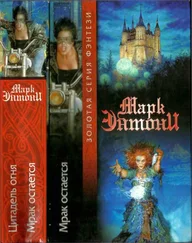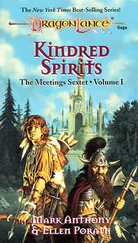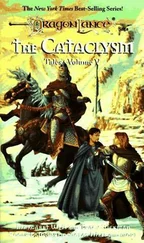Марк Энтони - The Cataclysm
Здесь есть возможность читать онлайн «Марк Энтони - The Cataclysm» весь текст электронной книги совершенно бесплатно (целиком полную версию без сокращений). В некоторых случаях можно слушать аудио, скачать через торрент в формате fb2 и присутствует краткое содержание. Год выпуска: 1992, Жанр: Фэнтези, на английском языке. Описание произведения, (предисловие) а так же отзывы посетителей доступны на портале библиотеки ЛибКат.
- Название:The Cataclysm
- Автор:
- Жанр:
- Год:1992
- ISBN:нет данных
- Рейтинг книги:5 / 5. Голосов: 1
-
Избранное:Добавить в избранное
- Отзывы:
-
Ваша оценка:
- 100
- 1
- 2
- 3
- 4
- 5
The Cataclysm: краткое содержание, описание и аннотация
Предлагаем к чтению аннотацию, описание, краткое содержание или предисловие (зависит от того, что написал сам автор книги «The Cataclysm»). Если вы не нашли необходимую информацию о книге — напишите в комментариях, мы постараемся отыскать её.
The Cataclysm — читать онлайн бесплатно полную книгу (весь текст) целиком
Ниже представлен текст книги, разбитый по страницам. Система сохранения места последней прочитанной страницы, позволяет с удобством читать онлайн бесплатно книгу «The Cataclysm», без необходимости каждый раз заново искать на чём Вы остановились. Поставьте закладку, и сможете в любой момент перейти на страницу, на которой закончили чтение.
Интервал:
Закладка:
Now she was dead. Now everyone was dead. Everyone, of course, except Gylar. For some reason, he hadn’t been affected, or at least not yet. His parents had seemed to be immune as well, until the day they collapsed in their beds, shivering.
Gylar rose and crossed the room. He looked out the window to the new day that was shining its light across the hazy horizon and sifting down over the trees skirting the new marsh. He clenched his teeth as a tear finally fell from his eye. If it hadn’t been for the marsh, none of this would have happened! Lutha never would have brought the evil back with her, and everyone would be okay. But, no, the gods had thrown the fiery mountain. They’d cracked the earth, and the warm water had come up from below, and with it whatever had killed the town.
Gylar banged his small hand on the windowsill. Why did they do it? The villagers all had been good people. Paladine had been their patron; Gylar’s mother had been meticulously devoted to her god, teaching Gylar to be the same. She had loved Paladine, more than anyone in the village. Even after the Cataclysm, when everyone else turned from the gods in scorn and hatred, Gylar’s mother continued her evening prayers with increasing earnestness. What did she, of all people, do to deserve such punishment? What did any of them do to deserve it? Was everyone on Krynn going to die, then? Was that it?
Gylar was young, but he wasn’t stupid. He’d heard his parents talking about all the other awful things now happening to people who’d survived the tremors and floods. Didn’t the gods care about mortals anymore?
Caught up in a slam of emotions, Gylar turned and ran from the house. He ran to the edge of the new bog and yelled up at the sky in his rage.
“Why? If you hate us so much, why’d you even make us in the first place?”
Gylar collapsed to his knees with a sob. Why? It was the only thing he could really think of to ask. It all hinged on that. Why the Cataclysm? How could humans have been evil enough to deserve this? How could anyone?
For a long moment he just slumped there, as though some unseen chain were dragging at his neck, joining the one already pulling at his heart. Gylar sniffled a little and ran his forearm quickly across his nose.
Stumbling to his feet, he looked at the sky again. Clouds were rolling in to obscure the sun, threatening a storm. Gylar sighed. Although he had nowhere else to go, he didn’t want to stay in this place of death. His eyes swept over Mount Phineous. The towering mountain still looked over-poweringly out of place, like a sentinel sent by the gods to watch over the low, hilly country. The top fourth of it was swept by clouds. Another result of the Cataclysm, the mountain seemed a counterpart of the new swamp. Brutal and imposing, powerful, the towering rock was the opposite of the silent, sneaky swamp of death.
His fatigue overcame his sadness and revulsion, at least for the moment. Slowly, he made his way back to the house, back to the dead house. Stopping in the doorway, Gylar turned around to look at the land that was growing cold with winter. It was likely going to snow today.
He turned and slammed the door shut behind him. It didn’t matter. Nothing much mattered anymore. His limbs dragged at him heavily. Sleep, he thought, that’s all. Sleep, then, when I wake up—if I wake up—I’ll figure out what to do.
So, for the first time in three days, Gylar slept.
Eyes focused on his prey, Marakion stilled his breathing, though a haze of white drifted slowly from his mouth. The scruffy man before him leaned heavily against the tree, huffing frosty air as he tried to recover from the run. Although exhausted, the man never once turned his fearful eyes from Marakion.
“A merry chase, my friend,” Marakion said in a voice that was anything but merry. “Tell me what I wish to know. This will end.”
The man stared in disbelief. Marakion was barely winded. The man gulped another breath and answered frantically, “I told you! I never heard of no ‘Knight-killer Marauders!’”
Marakion hovered over the thief, his eyes black and impenetrable, his lip twitching, barely holding his rage in check. The bare blade of his sword glimmered dully. “Knightsbane Marauders,” he rumbled in a low voice. The scruffy man quivered under the smoldering anger. “You are a brigand, just like them. You must know of them. Tell me where they are.”
“I told you!” The thief cringed against the tree. “I don’t know!”
In brutal silence, Marakion let loose his pent up rage. One instant his sword, Glint, was at his side, and the next, the flat of it smashed into the man’s neck. The thief was so surprised by the attack that he barely had time to blink. The strike sent him reeling. Two more clubbing strokes dropped him to the frosty earth, unconscious.
“Then you live,” Marakion said, breathing a bit harder. Leaning down, he searched the body thoroughly for the insignia that gave his life burning purpose.
There was none to be found.
Furiously disappointed, he left the useless thug where he lay and headed for the road.
The town that had been his destination before the small band of ruffians had attacked him lay ahead. He had searched all of the towns and outlying areas east of here, only to come up empty-handed, forever empty-handed. But this desolate area showed promise. Marakion was sure the marauders were here. They had to be. During the last few days, he’d come across numerous wretches like the one he’d just felled. None of them belonged to the Knightsbane, but their presence might be a sign that he was getting close to their hideout.
It wasn’t long before sparse trees gave way to a huge, rolling meadow. On its edge stood a squat, dirty little town. Marakion didn’t even look twice at the ramshackle buildings, the muddy, unkempt road, the muck-choked stream. The sight of people living in such squalor was not unusual to him, not unusual at all. In fact, this place was better than some he’d seen.
The few people he saw as he followed the road to town gave him quick, furtive glances from beneath ragged, threadbare cowls. Marakion ignored them, made his way to the first tavern he could spot.
He didn’t even read the name as he entered. It didn’t matter to him where he was, and the names only depressed him—new names, cynically indicative of the time, such as “The Cataclysm’s Hope,” or old names, which the owners hadn’t bothered to change. Those were even worse, sporting a cheerful concept of a world gone forever, their signs dangling crookedly from broken chains or loose nails.
Marakion opened the door; it sagged on its hinges once freed of the doorjamb. He pushed it shut, blocking out the inner voice that continued to remind him how worthless life was if everything was like this.
Marakion turned and surveyed the room, walked forward to the bar that lined the far wall.
The innkeeper had smiled as Marakion had entered, but now blanched nervously at sight of the hunter’s stony face, the dark, deliberate gaze.
“Uh, what can I do for you, stranger?”
“What do you have to eat this day, innkeep?”
“Fairly thick stew tonight. Mutton, if you’ve the wealth.”
“Bread?”
“Sure, stranger, fairly fresh, if you’ve the wealth.”
Marakion did not return the man’s feeble attempts to be friendly. “A chunk of fresh bread and the stew.” He tossed a few coins on the bar. “I’ll be at that table over there.”
The innkeeper scooped the coins off the counter in one movement. “I’m Griffort. You need anything, I’m the man to talk to. I don’t suppose you’ll be staying for the night. Got a couple of rooms open—”
“One room,” Marakion interrupted, “for the night.” He left a stark pause in the air and waited.
Читать дальшеИнтервал:
Закладка:
Похожие книги на «The Cataclysm»
Представляем Вашему вниманию похожие книги на «The Cataclysm» списком для выбора. Мы отобрали схожую по названию и смыслу литературу в надежде предоставить читателям больше вариантов отыскать новые, интересные, ещё непрочитанные произведения.
Обсуждение, отзывы о книге «The Cataclysm» и просто собственные мнения читателей. Оставьте ваши комментарии, напишите, что Вы думаете о произведении, его смысле или главных героях. Укажите что конкретно понравилось, а что нет, и почему Вы так считаете.
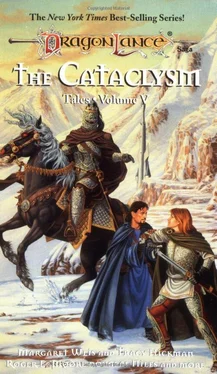
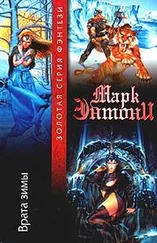
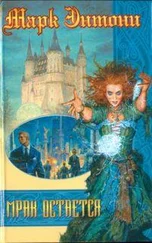

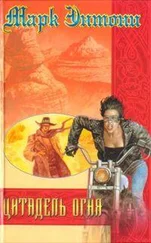
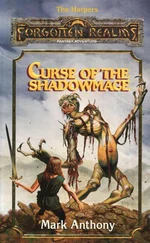
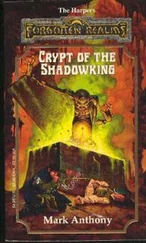
![Марк Энтони - Цитадель огня. Мрак остаётся [Авт. сборник]](/books/103986/mark-entoni-citadel-ognya-mrak-ostaetsya-avt-sbo-thumb.webp)
